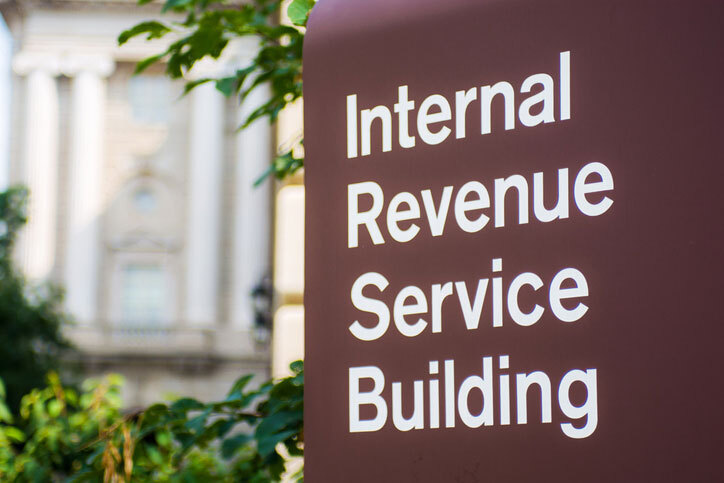Understanding IRS Notices and Letters
IRS notices are official letters from the IRS to a taxpayer. There are several reasons you may receive a notice from the IRS. It could be that you missed a deadline or incorrectly filed your tax returns.
What To Do When You Receive A Notice
The first and most important thing you should do is not panic. Most of the time, these letters only require you to read the directions and perform a simple action.
Verify the Notice
The next thing you should do is verify that it is indeed from the IRS and not a scam agency.
An authentic IRS notice will have your tax ID number and the tax year(s) in question noted on the page. If, when you search for your notice or letter using the Notices & Letters Search on this IRS page, nothing comes up, or you believe the notice or letter looks suspicious, contact the IRS at 800-829-1040.
Should you determine the notice or letter is fraudulent, please visit the IRS Report Phishing page for the appropriate course of action.
Determine If you Agree or Disagree with the Notice’s Information
If, after thoroughly reading the notice, you find that you agree with the content, you usually won’t need to reply – unless it gives you specific instructions or you need to make a payment.
If you disagree with the content of the notice, you must respond. Note, disagree means that you believe the IRS has made a mistake or that you want to challenge their statement.
Write a letter explaining why you disagree and include any pertinent information and documents. Mail your reply with the bottom tear-off portion of the notice. Send it to the address shown in the upper left-hand corner of the notice – allow at least 30 days for a response.
Keep Copies
Be sure to keep all copies of notices you receive with your other tax records. Should you have to call the IRS, have the notice handy.
Common Information Contained in A Notice
If you have never received a notice from the IRS before, here is what it typically tells you:
You have a balance due.
You are due a larger or smaller refund.
The IRS has a question about your tax return.
The IRS needs to verify your identity.
The IRS requires additional information.
The IRS changed your return.
The IRS has to notify you of delays in processing your return.
Types of IRS Notices
The types of notices you can receive from the IRS can be organized into three main categories.
Informational Notices
Informational notices usually do not require you to take action or reply, as they are mainly in response to a specific tax credit you claimed or any other specialized action you took with the IRS.
Tax Return/Account Change Notices
The IRS will send tax return/account change notices if there was an error on your tax return or if the IRS made a change to your account.
Common occurrences observed and reported on these notices include the following:
A mistake made on a return
Holes/gaps in your income
The IRS has issued an audit on your account or has already audited and is requesting changes
Back Tax Notices
This notice is very straightforward: you have a balance owed on your account. The notice includes the due date and your payment options.
When To Reach Out For Professional Help
With any IRS notice that requires action on your part, especially when dealing with a back tax notice, it is best to reach out to a tax professional. Most notices can be resolved with the appropriate guidance – guidance our Certified Tax Experts would be more than glad to give you.
Our resolution officers, CPAs, and tax attorneys can help you with any tax debt related issue you may be facing, such as wage garnishments, levies, liens, and unfiled taxes. Call one of our experts at 833-419-RISE (7473) or click here.
Any new or systemic Liens and/or Levies will also be suspended for the time being.
For taxpayers who are considered “seriously delinquent”, the IRS will suspend any new certifications for the remaining period. Any taxpayer who falls into this category in reminded and encouraged to enter into an Installment Agreement or apply for an Offer In Compromise.
The IRS will not forward any new delinquent accounts to private collection agencies at this time.
Taxpayers have until July 15, 2020 to verify to the IRS they are qualify for the Earned Income Tax Credit or to confirm their income. If the taxpayer is unable to verify their credentials or provide appropriate documents for this credit, they are encouraged to notify the IRS before the deadline. No cases will be denied this credit for failure to provide requested information until July 15.
Case workers will continue business as usual. However, most case work will be conducted remotely (video/over the phone conferences). Any requests for documentation sent by the Office of Appeals should be responded to in a timely manner to ensure a smooth process.
The IRS will continue to take the appropriate measures to stay compliant and protect the applicable statutes of limitations. In situations where certain statutes may be compromised, taxpayers are encouraged to extend such statutes. Otherwise, Notices of Deficiency will be issued by the IRS and similar actions will be pursued to protect the interests of the government in preserving such statutes. Where a statutory period is not set to expire during 2020, the IRS is unlikely to pursue the foregoing actions until at least July 15, 2020.
Practitioners are reminded that PPS wait times may be significantly longer, depending on staffing levels and allocations going forward. The IRS will continue to monitor this as situations develop.
“The IRS will continue to review and, where appropriate, modify or expand the People First Initiative as we continue reviewing our programs and receive feedback from others,” Rettig said. “We are committed to helping people get through this period, and our employees will remain focused on these and other helpful efforts in the days and weeks ahead. I ask for your personal support, your understanding – and your patience – as we navigate our way forward together. Stay safe and take care of your families, friends and others.”
Learn how easy it is to qualify for tax savings.




